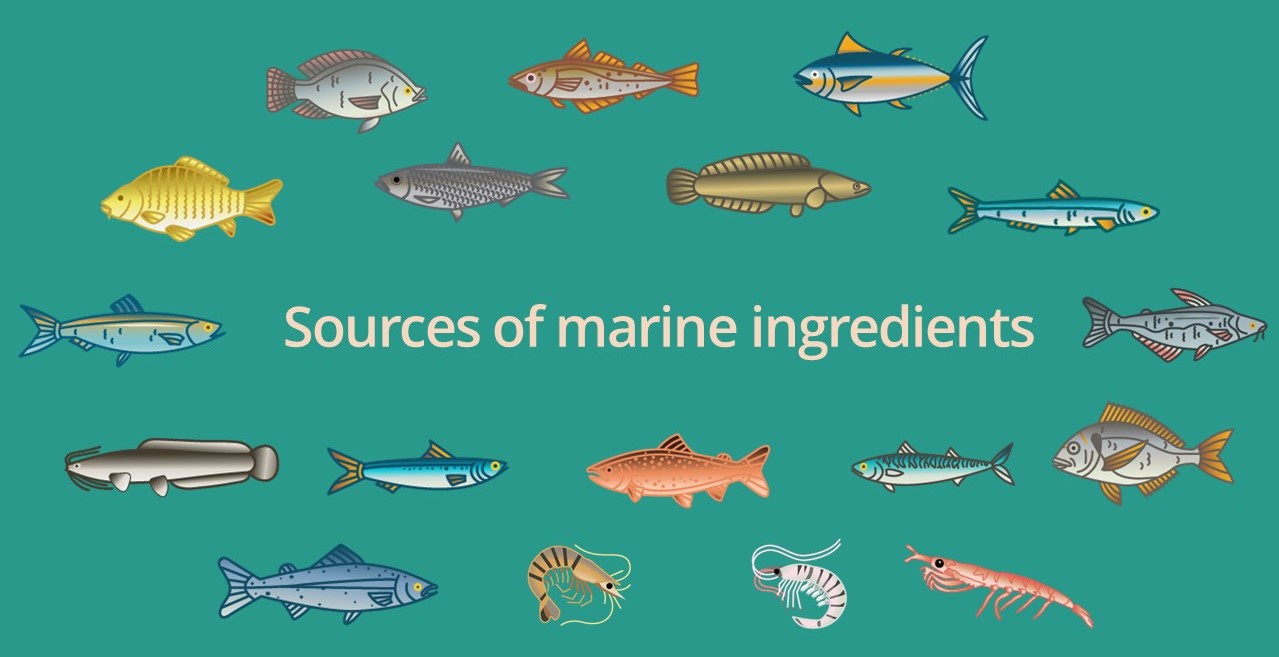The majority of marine ingredients are fishmeal and fish oil, derived from small pelagics, and a growing volume comes from by-products (trimmings). Fishmeal and fish oil provide essential nutrients for human health, indirectly through the farmed animals that we eat and directly through the consumption of fish oil capsules. Just as fishmeal and fish oil play a vital role in the growth and health of farmed animals, these essential proteins, fats, minerals and vitamins are then passed onto humans.
In short:
- High productivity: For the last 25 years, the production of fishmeal and fish oil has been relatively stable at approximately 5 million tonnes of fishmeal, and 1 million tonnes of fish oil. Supply has not increased alongside the increased need for aquafeed volume.
- Multiplier effect: 1kg marine raw material gives 5kg farmed fish across global production systems. Thus, fish which do not have a food market are converted into 5 times the volume of fish that people do want to eat.
- Decreasing impact on ecosystems: 1/3 of fishmeal is now produced from by-products, using what was previous waste and develop it instead as another valuable raw material from which fishmeal and fish oil may be produced.
Sources of Marine Ingredients
Small pelagic species
The small pelagic species that occupy the majority of the whole fish proportion are dominated by the Peruvian anchovy, Engraulis ringens. Peruvian anchovy provides enough raw material to account for 15-20% of the global annual production on any given year. Other important species are the Atlantic and Gulf menhaden in the US, and various sardine, sprat, mackerel, krill, and sandeel stocks around the world.

By-products
The growth in the utilisation of by-products allows to use what was previous waste and develop it instead as another valuable raw material from which fishmeal and fish oil may be produced. There is scope for increased fishmeal and fish oil production from seafood by-product
Uses of marine ingredients
Feed: Fishmeal and fish oil are the foundation of formulated feeds and are widely used in aquaculture and other land animal animal feeds to provide essential nutrition.
Supplements: Fish oil supplements help provide the daily recommended intake of long-chain omega-3 fatty acids, especially EPA and DHA, of 250 to 500 mg.
Nutrition is key
Marine ingredients provide essential nutrients for human health, indirectly through the farmed animals that we eat and directly through the consumption of fish oil capsules. Just as fishmeal and fish oil play a vital role in the growth and health of farmed fish, these essential proteins, fats, minerals and vitamins are then passed onto humans. For humans, fish provides energy and is a superior source of protein to other animal source foods in terms of total protein and essential amino acid content and digestibility. Among other nutrients, farmed fish are a rich source of vitamin D and calcium (bone and muscle health), vitamin B12 (aids metabolism), Zinc and Selenium (aids immune system).
The other key nutrient for human health in marine ingredients are the long chain omega-3s (EPA and DHA), which are crucial for the health and growth of the farmed animals and in turn pass on the significant health benefits to us.
